As Camus said, every winter’s end is followed by spring’s bloom. Wang Zhi Yi, featured on the cover of the July magazine, reflects on the turbulent journey of the Olympic qualifying season. Amidst a series of setbacks, she faced a crisis of confidence but also discovered the courage to rise from the darkest moments. Although she missed out on the Paris Olympics, Wang Zhi Yi, at the age of 24, has made a remarkable comeback, winning the women’s singles title at the World Tour three times in a row.
Looking to the future, this “post-2000” player understands that every moment spent in long periods of dormancy is not wasted. She continues to move forward, as the warmth and fragrance are waiting to blossom just around the corner.
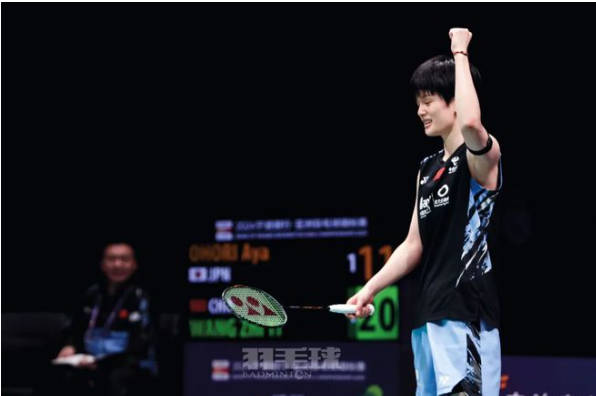
The Ups and Downs of Pursuing Paris
At 24, Wang Zhi Yi first attracted attention during the Tokyo cycle with her impressive performances. She joined the national team at the end of 2018 and had already achieved notable results, including winning the Asian Youth Games women’s singles title and earning runner-up spots at the Youth Olympics, World Junior Championships, and National Championships. Despite her achievements, she felt her results were still not comparable to her senior teammates. However, after winning six World Tour titles in 2019, she soared into the top 16 in the Tokyo Olympic rankings, although her inexperience kept her from qualifying as the third-ranked Chinese women’s singles player.
During the pandemic, Wang Zhi Yi played only six international events in the 2020 and 2021 seasons, totaling 16 matches. This was a significant setback for someone new to the senior circuit. With limited opportunities, she had to draw what she could from the few chances she had. Thus, she entered the Paris Olympic qualifying season with a mix of confusion and excitement, navigating ups and downs including early exits and tournament victories.
Unlike her previous novice state, Wang Zhi Yi aimed to seize every opportunity in the second round of the qualification, hoping to secure high points. On the day the Chinese team lifted the Sudirman Cup, she rushed to the Singapore Masters for her first qualifying event. However, she faced several losses: in the third round to Indonesia’s Mariska, in the Thailand Open to Canada’s Li Wenshan, in the Singapore Open semifinals to Korea’s Ahn Se-young, and in the Indonesia Open to Korea’s Kim Ga-eun.
From May 23 to June 15, Wang Zhi Yi participated in four tournaments within 25 days, experiencing a sense of unprecedented struggle. “I knew my form wasn’t great at the start of the qualification, but I thought I could adjust step by step, as there was a long road ahead. However, there was also a pressing sense of urgency, especially when losing to opponents I felt I could beat, which made me doubt myself.”
During this period, Wang Zhi Yi also learned that her mother was ill. Facing this sudden blow and being away from home since childhood, she was filled with worry and distress. Despite rarely taking leave, she took two days off to visit her mother. To ensure she could focus on training and competition, her parents stayed in daily contact with her.

Returning to the team, Wang Zhi Yi soon faced the next stage of the competition. However, she fell into a series of internal conflicts in the subsequent marathon of tournaments. In mid-July, she encountered Chen Yufei in the Korean Open third round, then faced He Bingjiao the following week, and despite defeating He Bingjiao in the second round of the World Championships, she faced Chen Yufei again the next day. After being eliminated by Ahn Se-young in the Changzhou Open and by Zhang Yiman in the quarterfinals, Wang Zhi Yi reflected on her situation, noting, “After the first four tournaments, I lost to teammates consistently. Nine losses felt like nine tournaments, out of only a dozen in a year.”
This is the peculiarity of the Olympic qualifying process—it tests not only technical skills but also mental resilience and focus. With all players pushing towards the same goal, there is no time to adjust. The relentless competition almost shattered her confidence. “Confidence isn’t something that just disappears; losing match after match makes you hesitant to have any expectations, let alone goals.” Wang Zhi Yi recalled the period as particularly gloomy, feeling her form was poor and her mental state unstable. With a low winning rate, she became increasingly doubtful of her abilities.
Seeing her struggle on the court, women’s singles coach Luo Yi was naturally more anxious. Wang Zhi Yi, who had once been compliant, had shut herself off, preoccupied with thoughts of her mother. When she asked Luo Yi for leave again, he firmly refused: “There are still half of the qualification matches left. If you go home now, will your parents agree?”
This refusal cleared the fog in Wang Zhi Yi’s mind. “I understood Luo Yi’s words, as I was indeed not playing well. This refusal made me suddenly see things clearly.” Wang Zhi Yi emerged from her frustration, no longer dwelling on why she couldn’t help her mother or why she couldn’t break through the difficulties.
Embracing Reality and Letting Go of Expectations
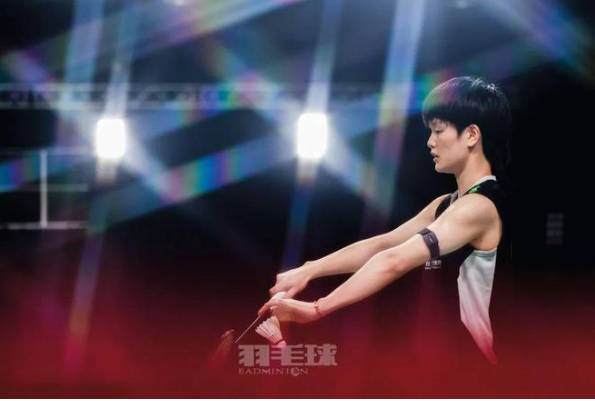
“Looking back at this period now, do you find it hard?” Wang Zhi Yi reflected that perhaps this is the way of life. She realized that despite the difficulties, her love for badminton was never lost. During the interview, she expressed that this period required courage. “It made me understand the importance of mental and emotional state, to truly face myself, my weaknesses, and my shortcomings. It also taught me that during competitions, I must not doubt myself or my tactics.” Wang Zhi Yi learned the significance of confidence during those challenging months. “Watching the match footage, I felt that despite being in a less favorable condition, I gave my best.”
After less than three weeks of adjustment, Wang Zhi Yi showed some improvement at the Finland Open in October, although she lost in the final to teammate Han Yue, she defeated India’s Sindhu in the semifinals. Subsequently, she was eliminated by Chen Yufei in the sixteenth round of the Denmark and France Opens, but she remained undeterred. Although she missed the year-end finals, she accepted the challenging draw at the Shenzhen Masters with calm.
As the final tournament of 2023, Wang’s parents decided to travel to Shenzhen to support their daughter. Wang’s father stated before the tournament that he would definitely be there to cheer her on. “Because my daughter’s form has not been good all year, I must go to support her.” At the time, Wang’s mother had also recovered well after surgery. The presence of her parents at the Shenzhen Open had a notable effect, as Wang Zhi Yi won 21-12, 21-16 against Ahn Se-young in the second round. “Despite Ahn Se-young’s injury, the crowd’s support was incredibly motivating. My dad cheered loudly from the stands.” From then on, Wang Zhi Yi started celebrating victories with a heart gesture. “That was my first time making a heart gesture, towards my parents in the stands.”
Through the final tournaments of the year, Wang Zhi Yi realized that focusing on points and rankings was less important than letting go of expectations and seizing the present. “Focus on doing your best, seek breakthroughs in each match, and recognize your progress, even if only a little.” She no longer confined herself to expectations, as sometimes, expectations can be an invisible constraint.
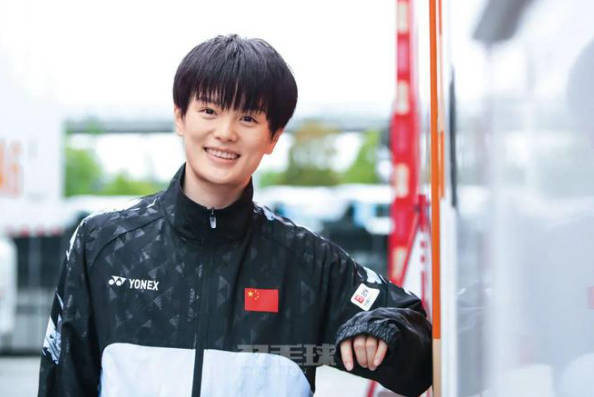
“For instance, if I draw a teammate in the same half, my immediate reaction is no longer ‘why another internal battle,’ even though the draw isn’t favorable. Since you can’t control everything, the best approach is to ‘let it be.’ This sounds simple but requires an open heart to accept.” Wang Zhi Yi began drawing energy from small successes, such as executing a new tactic in training, seizing a difficult opportunity, or winning a breakthrough match, with her condition improving as her mindset brightened.
“By maintaining a positive thinking pattern, I entered a virtuous cycle. Matches still involve wins and losses, but I no longer overemphasize them. Instead, I dare to affirm my progress and growth.” After returning from Europe, the Chinese badminton team transferred training to Lingshui, where the team organized psychological courses in preparation for the Olympics. As someone interested in psychology, Wang Zhi Yi attended the lectures seriously and found that sports psychology could provide practical insights. “What I benefited most from was the guidance towards the right direction. Recognizing my strengths and affirming myself while moving towards my goals.”
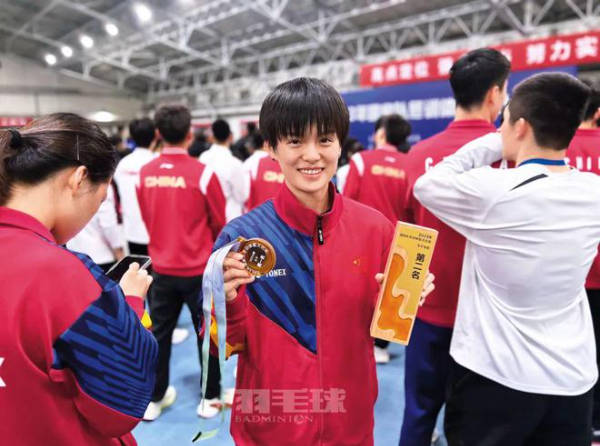
With everything moving in a positive direction, Wang Zhi Yi finally broke her championship drought at the Indonesia Masters at the end of January 2024, after 21 months. As the final point saw Aya Ohori’s shot go out, Wang Zhi Yi gently tossed her racket into the air, overwhelmed with emotion. Looking back, she still says, “Winning the championship was particularly touching; it felt like a long-awaited breath finally released.”
At the Asian Championships in Ningbo, the last qualifying event, Wang Zhi Yi displayed commanding performance, defeating He Bingjiao in the semifinals and Chen Yufei in the final. Two years later, winning the Asian Championships women’s singles title again, she admitted that the victory made her emotional, as this time she was resolute and did not let doubts resurface. It was through these step-by-step achievements that she proved that effort is synonymous with miracles.
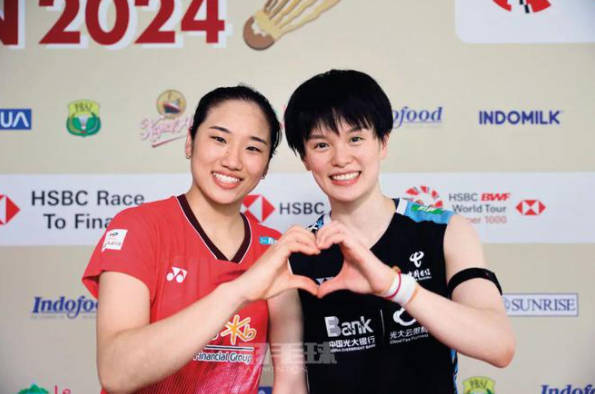
Reflecting on her past self, Wang Zhi Yi joked, “At the Ningbo Asian Championships, my parents also came to the scene. I only booked their hotel for two days before the

Leave a Reply